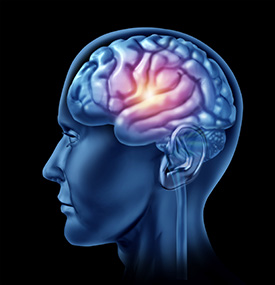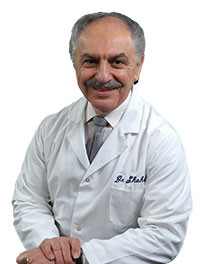Transcranial Magnetic Stimulation for Depression in Midland Park, NJ

Treatments for depression and migraine headaches usually revolve around a combination of medications, some of which carry distasteful side effects. In 2007 the FDA approved transcranial magnetic stimulation (TMS), a new non-invasive treatment option which has been growing in popularity.
What is Transcranial Magnetic Stimulation?
TMS operates much like an MRI machine in that magnets and magnetic fields are used on the body. With TMS however, a very specific area of the brain called the left prefrontal cortex (PFC) is targeted. This area of the brain is one of the major areas responsible for managing mood , including depression .
Neurons (brain cells) are triggered by tiny electrical impulses, when a specific threshold is reached, they secrete neurotransmitters (brain chemicals). These neurotransmitters act as messengers communicating one neurons message to another. This process must happen for every action involving the brain.
Transcranial magnetic stimulation, by stimulating neurons that make up the PFC, induces the flow of neurotransmitters. This can release serotonin, norepinephrine, even dopamine. Low levels of serotonin are widely believed to be the core cause of depression (now called major depressive disorder). By raising the levels of serotonin via TMS, many have experienced relief from the emotionally suffocating symptoms of depression.
TMS Procedure
After an initial assessment, including a physical exam, a TMS technician will determine your motor threshold. This is the minimum amount of power required to make your thumb twitch. Once this individualized level is set, your transcranial magnetic treatment can begin.
The typical treatment plan lasts between 4 and 10 weeks, with up to 60 sessions completed in total. It’s often recommended that a session be performed 5 times a week. This may sound like a lot, but consider that traditional antidepressant medications may require a full two weeks to take initial affect (and require further adjustment of dosage thereafter).
Side Effects and Other Uses
Side effects are rare with transcranial magnetic stimulation, but one called “The Dip” should be monitored for closely. Like most depression treatments, medications or TMS, there is a chance that depression may worsen in severity. This is mainly a side effect of a serotonergic surge (rapid increase in serotonin levels). Lucky the effects of The Dip are transient (temporary).
Other “off-label” uses for TMS include:
- PTSD
- Fibromyalgia
- Bipolar disorder
- Parkinson’s disease
- Autism and autism spectrum disorders (like Asperger’s )
- Tourette syndrome
- Alzheimer’s disease
- Impulse disorders (like pyromania )
- ADHD
- Epilepsy
- Schizophrenia
- Addiction
In addition, TMS+YOU a website dedicated to providing patient facing information on transcranial magnetic stimulation and advancements, states that TMS has an astonishing 60% success rate.
If you—or someone you know—has depression, especially medication resistant major depressive disorder, TMS may be the solution for you.
Reclaim your life and request more information about Transcranial Magnetic Stimulation for Depression today. Call (201) 806-6099 or contact Dr. M.T. Shahab online.
Medwell Orthopedics & Functional Medicine for Men & Women
Address
33 Central AveMidland Park, NJ 07432
(201) 806-6099
www.BergenCountyDoctors.com
Hours
Mon:
8:00 am - 8:00 pm
Tue:
2:00 pm - 7:00 pm
Wed:
8:00 am - 6:30 pm
Thu:
8:00 am - 1:00 pm
Fri:
8:00 am - 6:30 pm
Sat:
9:00 am - 1:00 pm
Sun:
By Appointment Only


